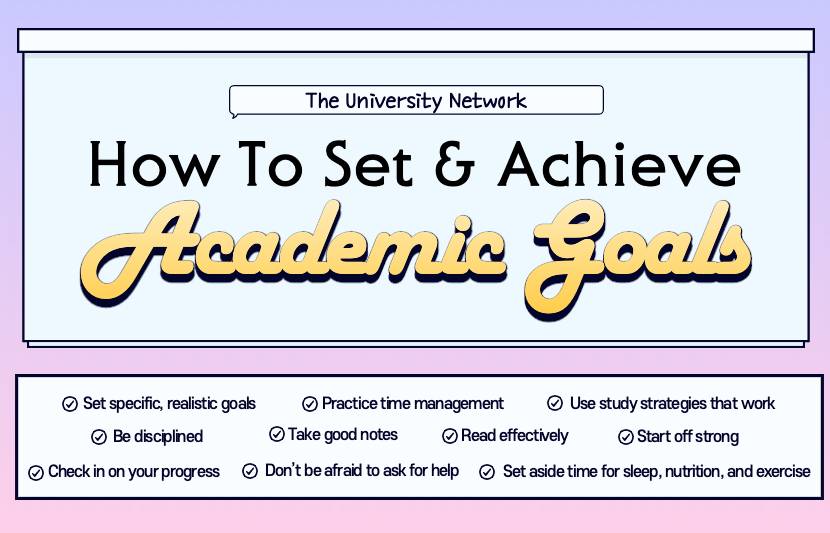1. For a BECE or WASSCE applicant to succeed, setting academic goals is essential. Asking yourself, "What do I want to achieve in my exams?" will help you do this. Be precise and solidified in reality. Set goals for the short and long term. For instance, "I want to get into a reputable senior high school or university" and "I want to score at least 80% in my math exam" are examples of short- and long-term goals. Split your objectives into more achievable, smaller tasks, such as completing a set of practice questions or devoting a specific amount of time each day to studying. Set goals and keep track of your progress in written form. Setting and maintaining specific goals will keep you dedicated, concentrated, and focused. Additionally, it will assist you in making decisions which align with your goals, which will ultimately assist you succeed in exams and other endeavors. By establishing goals for your educational pursuits, you take authority over your education and equip yourself for excellence.
2. Time management skills are essential for WASSCE and BECE candidates. Set up and follow your study timetable in order to efficiently utilize your time. Separate your most challenging subjects into prioritized lists and give them additional attention. To prevent fatigue, designate certain periods for evaluating, practicing, and studying. Be certain to include frequent breaks. To stay concentrated and organized, make use of materials like apps, planners, and calendars. Understand when to say "no" to friends or social media during your study time. You'll be able to cover all of your studies, improve your understanding of the subject matter and feel more competent and ready for examinations if you regulate your time well.
3. Knowing your strengths and challenges is essential for your academic success. Discover your areas of strength and weakness by genuinely monitoring your topics and subjects. While you continue to perfect your weaknesses, concentrate on building your strengths as well. Utilize this knowledge of oneself to adjust your study timetable, targeting your strongest subjects and asking for additional support as necessary. Realize that weaknesses do not define you and that you can transform them into strengths with diligence and determination. You will maximize your study time, gain confidence, and get better evaluation results by recognizing and concentrating on your strengths and failings.
4. Academic success demands constant motivation and focus. Set achievable goals for yourself and praise yourself when you attain them to stay inspired. Find your why - the reason you're working so hard - and keep informing yourself of it. Make your learning environment conducive and free from interruptions. To boost confidence, start using positive self-talk and affirmations. Take regular breaks to keep your mind fresh and prevent fatigue. Associate yourself with individuals who support and motivate you. Celebrate minor victories along the way, and don't be unreasonable on yourself when you suffer setbacks. Stay motivated, and you'll be competent to get past drawbacks and achieve your goals.
5. The acquisition and utilization of materials is vital for academic achievement. Textbooks, internet resources, instructors, students, and tutors are examples of resources. List the materials you will require along with what to do to get them. Make use of the instructional websites, internet resources, and school libraries. When in need, don't be reluctant to seek teachers or fellow students for support. For additional assistance consider participating in a study group or getting a tutor. Apply technology to improve your study by using materials like instructional videos and apps. By discovering and making use of the resources that are available to you, you can address lack of understanding, broaden your horizons, and flourish academically.



No comments yet
Be the first to share your thoughts!